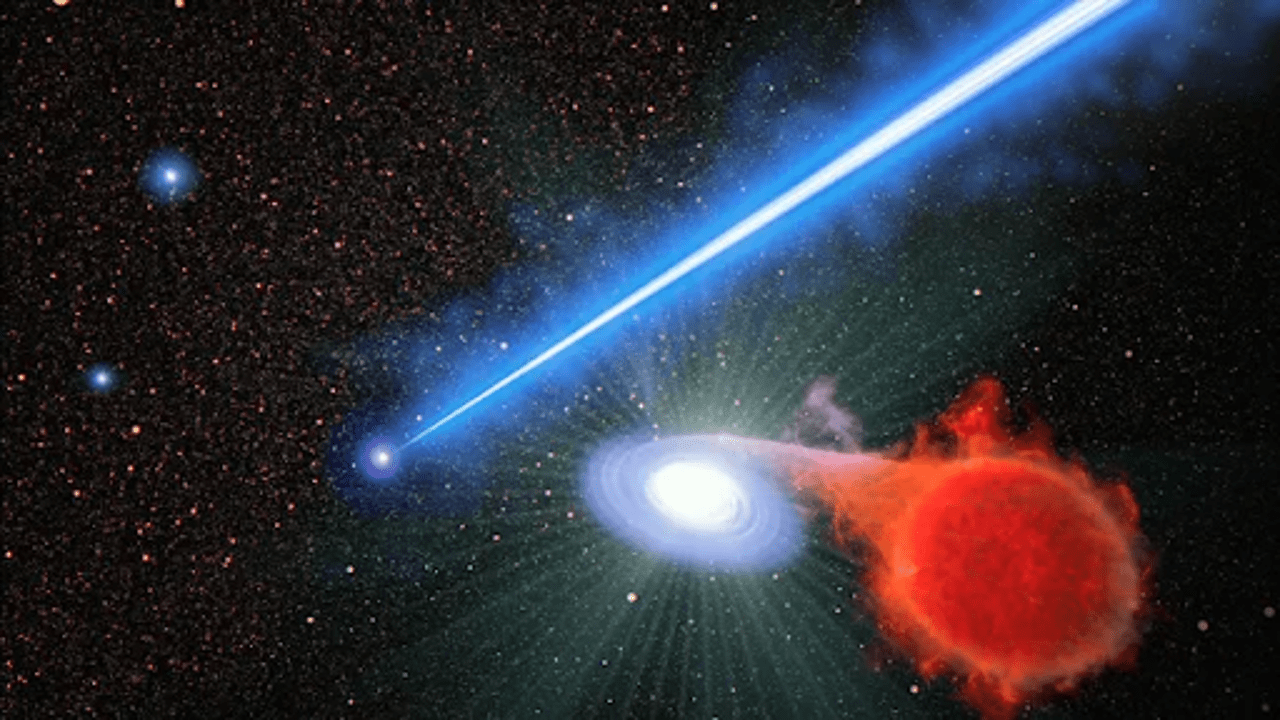
Image credit: NASA
Astronomers, using the Hubble Space Telescope, have made a striking discovery: a massive "blowtorch-like" jet of plasma, streaming out from a supermassive black hole, appears to be causing nearby stars to explode. The jet, extending an astonishing 3,000 light-years, originates from the center of the galaxy M87, where a black hole resides with a mass 6.5 billion times that of our sun.
This beam of energy, lethal to any object it directly encounters, is causing destruction even in its vicinity. Astronomers have noticed that the jet may be triggering explosions in nearby star systems, known as novas. Novas typically occur when a white dwarf, the remnant of a dead star, pulls hydrogen from a companion star, leading to an explosive reaction. However, the scientists were surprised to find that more novas were happening near the jet than elsewhere in the galaxy, suggesting the jet is accelerating these explosions.
"We're not entirely sure what’s causing these explosions, but it’s an exciting mystery," said Alec Lessing, an astrophysicist from Stanford University and the lead author of the study. "It reveals there's a gap in our knowledge of how black hole jets interact with their surroundings."
The researchers published their findings on August 14, and while the paper awaits peer review, it’s already sparking discussions in the scientific community. These jets of energy are a well-known phenomenon in galaxies with supermassive black holes at their centers. As black holes suck in matter, friction heats it up, releasing intense light and occasionally ejecting some material into space in the form of these high-energy beams. But how exactly these jets influence their environments remains largely unknown.
By observing the jet near M87, researchers identified twice as many novas occurring in its path compared to other areas of the galaxy. This unusual activity led the team to believe the jet is influencing the stars in its vicinity in a way that makes them more likely to erupt.
Typically, a nova explosion occurs in a binary star system when a white dwarf siphons hydrogen from its neighboring star until the buildup causes a nuclear explosion. The jet from the black hole may be speeding up this process by somehow forcing more hydrogen fuel onto these white dwarfs, causing more frequent eruptions. However, scientists are not yet sure if this is due to a direct physical push from the jet or if it’s the pressure from the intense light emitted by the beam. Either way, something near the jet is increasing the rate at which hydrogen reaches these white dwarfs.
Another possible explanation is that material from the jet is being captured by the nearby companion stars, causing them to feed more hydrogen to the white dwarfs, leading to more frequent novas.
To uncover the precise cause of this phenomenon, astronomers will need to observe the jet’s influence on nearby star systems more closely. Though difficult, this task isn’t impossible—novas in M87 occur almost daily, providing plenty of opportunities for further study.















